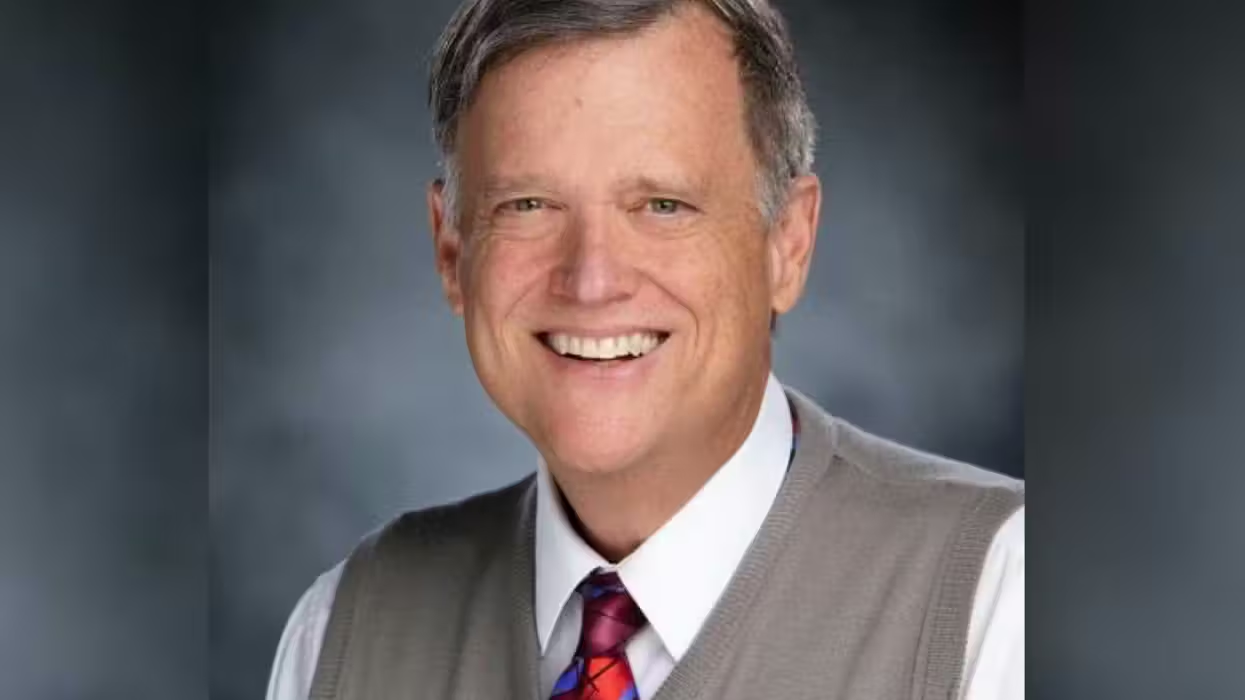
© 2025 Blaze Media LLC. All rights reserved.
"...even Gallup is slightly confused by the results."
Gallup has released an intriguing report that ranks the most “economically confident” states in America.
And although the report lists the most "confident" states, don’t be fooled into thinking these areas actually believe that the U.S. economy is improving. On the contrary, the report is careful to point out that, nationally speaking, faith in the U.S. economy is slipping.
In fact, out of all the areas surveyed, the place with the highest confidence rating (the District of Columbia) isn't even a state!
“Economic confidence dropped in all states . . . in 2011, reflecting the overall decline nationally,” Gallup reports. “The declines range from a low of 3 points in Idaho and West Virginia to a high of 22 points in Delaware.”
Overall, two-thirds of the participants in the Gallup phone survey believe that the economy is getting worse, according to the data.
What does this mean?
“Americans overall and in every state remain more negative than positive about the economy, creating a challenge for President Obama as he seeks re-election this year, given the strong relationship between economic conditions and an incumbent's re-election success,” Gallup reports.
It continues:
“On a near-term basis, however, economic confidence picked up in January of this year, perhaps foretelling a more positive uptick to come in 2012. Americans are also substantially more confident about the economy now than they were in the year Obama was elected. Thus, it is not clear if voters will reward him for the signs of economic improvement that have come in recent years, or hold him accountable for the fact that the economy is still struggling nearly four years after he took office.”
Perhaps before any conclusions are drawn from the Gallup report, a few things should be pointed out.
First, as mentioned several times on The Blaze, before accepting survey results, one should take into account the possibility of “sampling errors.” That is, one must bear in mind of the likelihood of skewed polling data.
Second, as the Washington Post’s Ezra Klein notes, there are some rather inexplicable results in the Gallup report:
… residents of Washington are more optimistic than, well, anyone else. Our Index is -4. The next-most optimistic state, North Dakota, is at -26. That’s rather odd, given that North Dakota’s unemployment rate is 3.4 percent, while the District of Columbia’s is stuck above 10 percent.
Indeed, that is odd.
“One possibility is that the poll is wrong,” Klein writes, “Another is that the political nature of the economic crisis leaves residents of Washington feeling more in control than residents of other states.”
Echoing the sentiments of Mr. Klein, even Gallup is slightly confused by the results: “There are no clear patterns in the states that rank in the top and bottom 10 in economic confidence. For example, the top 10 states vary by region and political leanings, including the most (Hawaii, along with D.C.) and least (Utah) Democratic states.”
This begs the obvious question: how did Gallup structure its phone survey?
Gallup explains:
Results are based on telephone interviews conducted as part of Gallup Daily tracking January 1-December 31, 2011, with a random sample of 174,639 adults, aged 18 and older, living in all 50 U.S. states and the District of Columbia.Interviews are conducted with respondents on landline telephones and cellular phones...Each sample includes a minimum quota of 400 cell phone respondents and 600 landline respondents per 1,000 national adults, with additional minimum quotas among landline respondents by region. Landline telephone numbers are chosen at random among listed telephone numbers. Cell phone numbers are selected using random-digit-dial methods. Landline respondents are chosen at random within each household on the basis of which member had the most recent birthday.
Okay, now that the methodology is understood, what do the results mean? That is, what does it mean when Gallup says that the District of Columbia has a "-4" economic confidence rating?
The Index is based on the average differences between Americans' assessments of current conditions (11% excellent or good and 48% poor in 2011) and their views of whether the economy is getting better (29%) or worse (66%). The Index has a theoretical range of -100 to +100, with negative scores indicating respondents are more negative than positive about the economy.
So, with that in mind, and despite the possibility of "sampling errors," these are the most economically confident states (and the District of Columbia), according to Gallup:
[gallery link="file" order="DESC" columns="2"]
(H/T: The Huffington Post)
Want to leave a tip?
We answer to you. Help keep our content free of advertisers and big tech censorship by leaving a tip today.
Want to join the conversation?
Already a subscriber?
more stories
Sign up for the Blaze newsletter
By signing up, you agree to our Privacy Policy and Terms of Use, and agree to receive content that may sometimes include advertisements. You may opt out at any time.
Related Content
© 2025 Blaze Media LLC. All rights reserved.
Get the stories that matter most delivered directly to your inbox.
By signing up, you agree to our Privacy Policy and Terms of Use, and agree to receive content that may sometimes include advertisements. You may opt out at any time.





